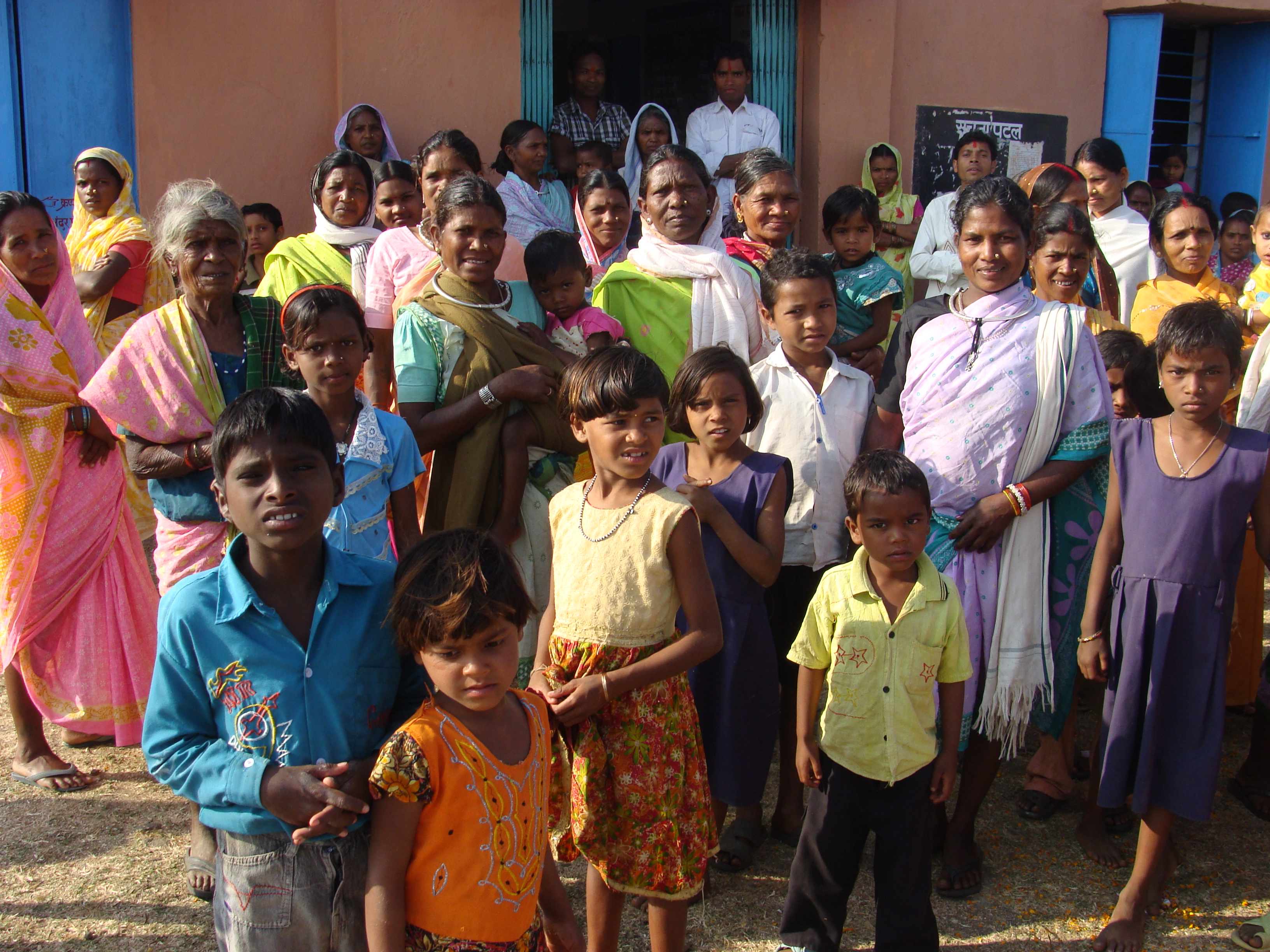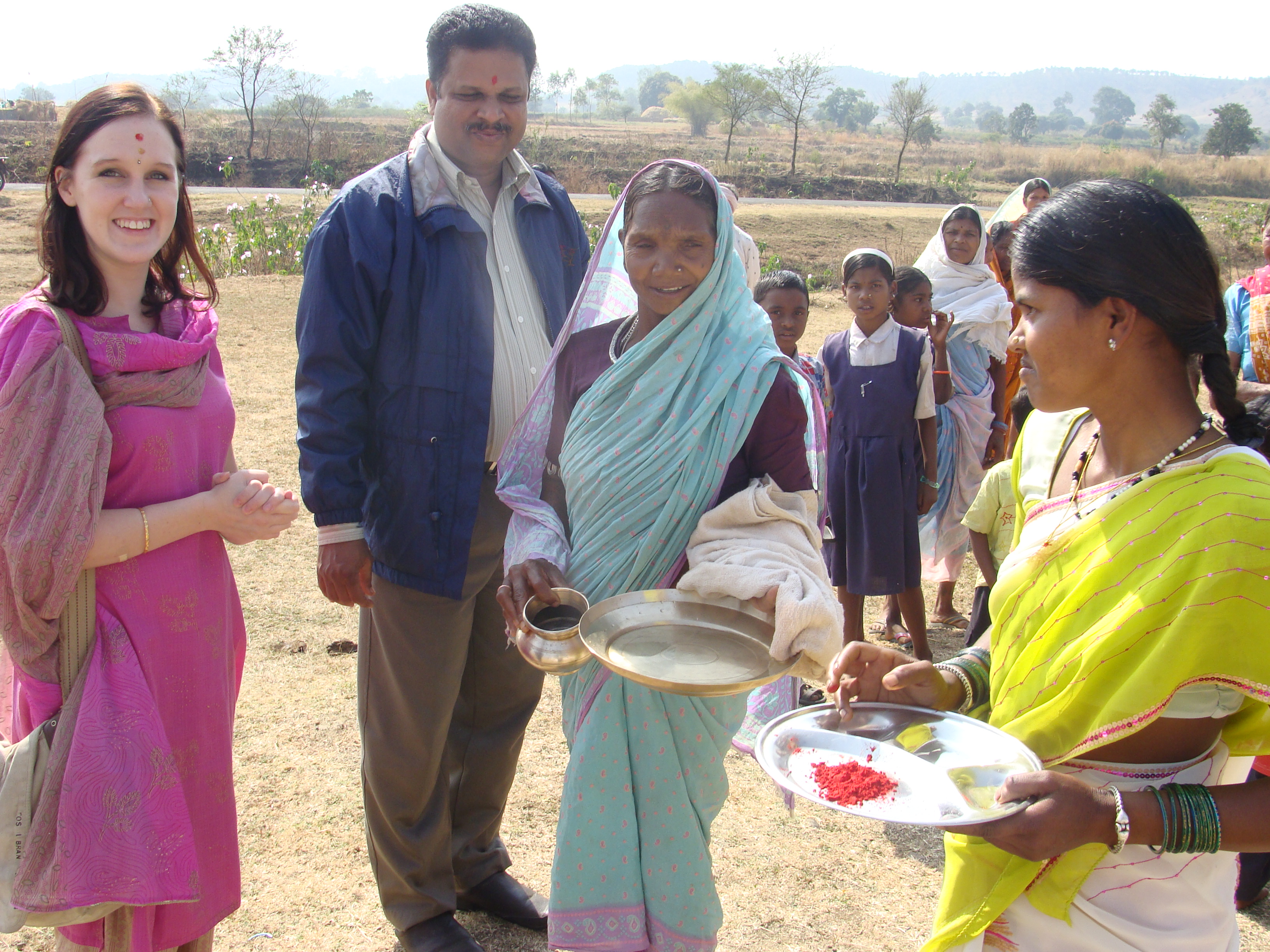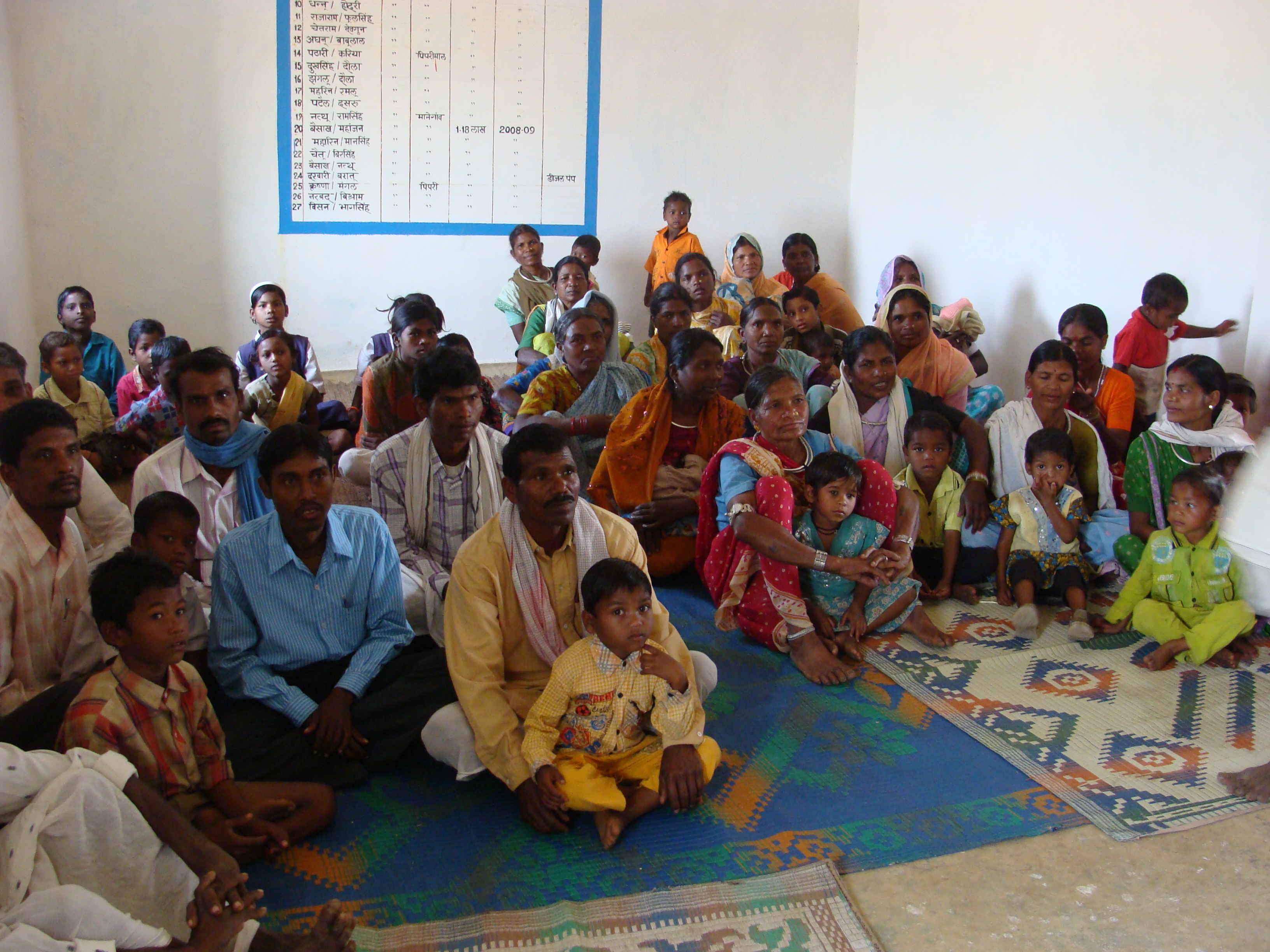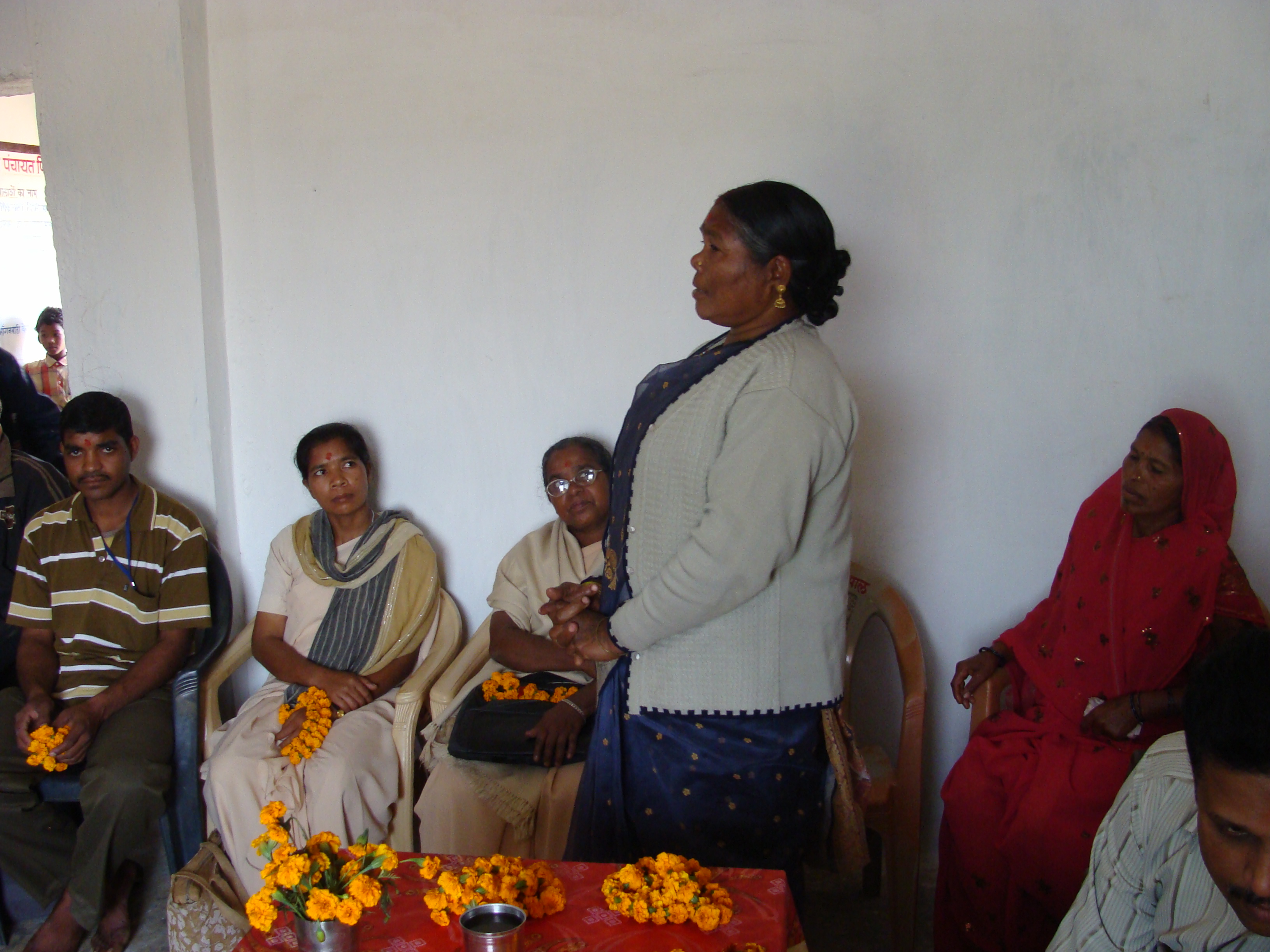
SAFP Canada Staff Cassandra Griffin writes from the field in India.
The road that led to the village had never been paved. It was narrow and rocky, and as our driver navigated it with both skill and courage, we were tossed and shaken around in the jeep. We had already driven many hours like this to find the remote village of Mane Goan, but all that was forgotten when we saw the large group gathered outside the only building in sight, waiting to greet us. These were members of the recently formed Village Action Team and other interested community members who were meeting to discuss the community’s problems and search for possible solutions as part of the SPED III Program.
The SPED III Program (Sustainability Through Participation, Empowerment, and Decentralization – India) is currently being implemented in 580 villages all across India. The people who benefit from this program belong to 10 different states, speak a wide variety of languages, and come from different religious backgrounds, tribes, castes, and political parties. The SPED III Program asks them to stand together to gain access to the many programs provided be the Government of India to assist communities in overcoming their problems and realizing their basic rights.

The people of this particular village are from a tribe called the Gonds who long ago ruled a large part of the area that is now Madhya Pradesh and Chhattisghar. Now, they face discrimination from mainstream society and many live without access to basic facilities. After we were greeted in the community with the washing of our hands, a traditional song and dance, garlands, and of course a cup of tea, we discussed some of the activities that had been going on in the village.
The villagers explained a long list of issues to us, some of which they had been trying to overcome for more than a decade. The SPED III program asks the village to select just one or two issues to address each year, so this community had chosen sanitation and cooking fuel. There was not a single family that had a latrine in the village and no public toilet was available, so the people were simply using open areas. This practice can lead to many health issues and makes problems of privacy for women. They also had difficulties finding firewood for cooking, since the land in the area is very bare.

With local government representatives present, we discussed the possibility of accessing government resources to overcome these problems. We learned that the government will pay half of the cost of constructing a sanitary latrine for anyone living below the poverty line, which included more than half of the villagers. They would need to contribute a small amount of savings, along with their labour. There were also grants available to support communities in accessing more effective types of cooking fuel. Beyond this, local governments have large funds available that can be allocated for these types of projects that will benefit impoverished communities in their area.

Each year, large portions of these types of funds go unused because communities do not have the knowledge or the capacity to access them. Other amounts are lost due to government corruption. It is important for communities to increase their awareness of these types of programs and to understand that these provisions are not charity, but a part of their rights as citizens of the country. By standing together and making their voices heard, they can work to make their local governments more effective and accountable and create lasting change in their communities.
We look forward to sharing in the success of the people of Mane Goan and all the other villages participating in the SPED III program in the coming years.

